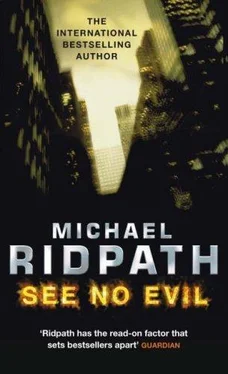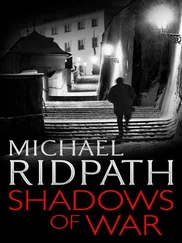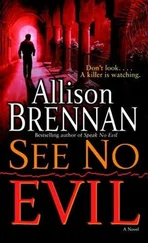“Okay.”
“Well. She bumped into a South African. A member of the South African Communist Party.”
“Who?”
“She wouldn’t say. But remember she lives with the Mackie girl. Maybe it was her parents. Or friends of her parents. Who knows? But this South African told her something quite disturbing.”
I waited. Cornelius was lying on his back, staring at the ceiling.
“He said there was a list. A list with my name on it.”
“What sort of list?”
“A come-the-revolution-who-are-we-going-to-line-up-against-the-wall list.”
“No!” I turned toward him.
“Yes.”
“Do you believe it?”
“I don’t know. I think so. The SACP’s headquarters is in London, everyone knows that.”
“Who else is on the list?”
“It’s a long one, apparently. The man didn’t give her any more names. Apart from one.”
“Whose is that?”
He raised himself on to his elbow and looked me in the eyes for the first time that evening.
“Yours.”
Cornelius’s study was a mess. Every surface of the expensive furniture was covered with paper: spreadsheets, financial reports, printouts of news articles, consultants’ studies, and even some newspapers. Cornelius tried to make sure he read at least the Herald and the Philadelphia Intelligencer every day, but the copies were piling up. There were also back issues of The Times. These he had been studying closely.
Edwin was looking worn. His three-piece suit was intact, he was wearing a tie and the top button of his shirt was still done up, but he was frayed around the edges. Cornelius’s insistence that no one else from Zyl News be involved meant that Edwin had had to do a lot of the work he would normally have farmed out to his MBA grunts. He had done it diligently and well, but he hadn’t slept much.
Cornelius, on the other hand, was a volcano of energy. He found it difficult to sit still for more than a minute or two without darting from one problem to another. He threw himself into the transaction and drove Edwin into the ground.
The Bloomfield Weiss bankers filed into the study. Benton led the way, followed by Dower, but now they had a real deal for which they would be paid fees, the team had grown to six. There was probably a battalion of Bloomfield Weiss’s own grunts back at their office in Broadgate also working on the transaction out of sight.
‘Sorry about the mess, gentlemen,’ Cornelius began. ‘How’s it going with the banks?’
Dower opened his mouth, but before he could say anything Benton spoke. ‘Very well. I think they had some trouble at first, the numbers are a bit tight, there’s no getting around that, but we’ve got National Bank of Scotland interested in taking on the role of lead manager. They’re a good institution, I think they’ll do a fine job for you.’
‘What kind of covenants will they want?’
‘Andy?’ Benton turned to Dower, who was obviously seething. Cornelius could see Dower had been upstaged by Benton and was angry about it. He found investment bankers’ grandstanding tiresome, but after twenty years he had become used to it. For all Bloomfield Weiss’s faults, and there were many, they had stuck with him through good times and bad, and that was worth a lot. Cornelius would never totally trust them, though. They were investment bankers, after all.
Dower went into details of the financial covenants the banks would demand be included in the legal agreements, and the presentation Edwin and Cornelius would have to make to them the next day. Then discussion moved on again to the price they were planning to pay for The Times.
‘We’ve had our analysts take a look at Evelyn Gill’s Beckwith Communications,’ Dower said. ‘Of course it’s totally private, and the accounts are a tangle of holding companies. When they borrow, they tend to go to a tight group of banks in Switzerland. But we don’t think Gill has access to more funding. A cash offer from you of eight hundred and fifty million would be hard to match. He won’t be willing to go to the bond markets for it, and his corporate structure is too messy to be able to get an equity offering away in a hurry.’
Cornelius wasn’t going to fall into the trap of underestimating his opponent. Sir Evelyn Gill was a stout man with a defiant stare and a heavy lower jaw thrusting aggressively forward. He had worked in his father’s business trading steel in Sheffield, but had seen the writing on the wall for the industry and diversified into ever more precious metals, until he had transformed the family firm into an international commodity speculation outfit. He had invested some of his profits in the purchase of Beckwith Communications, a magazine publisher, in the 1980s, before using this vehicle to launch his failed bid for the Herald in 1988 and bagging the tabloid New York Globe the following year. Since then he had bought the London tabloid Mercury and a series of other newspapers and magazines throughout Europe, Australia and South Africa as well as a book publisher in London. Although Beckwith didn’t publish figures, his newspapers were rumoured to be extremely profitable. They all took a populist right-wing stance — anti-immigration, patriotic, anti-bureaucratic — that seemed to strike a chord wherever they were published. Even his more serious political weeklies in France and Sweden subtly followed that line, and circulation had increased. His contribution to the national media was recognized when he was knighted by the Conservative government in 1996, the year before their election defeat.
‘Gill has been trying to talk the price down,’ Cornelius said. ‘You know the game: bait and switch. Agree a price in principle and then negotiate it down because of problems you supposedly discover during due diligence. In this case it’s accounting discrepancies and under-funded pensions.’
‘Those could be real issues for us as well,’ Dower said.
‘Laxton Media think it’s all bullshit. They are pissed off. Even better for us if we come in with a higher offer.’
‘How do we know this?’ Benton asked.
‘Edwin has a source.’
There was a brief uncomfortable silence. Edwin stared at the papers in front of him while the minds of everyone around the table flitted over the possibilities of what Edwin’s source might be. Cornelius knew that Edwin had a reputation for the occasional use of underhand methods to get things done. Cornelius also knew this reputation was justified. He hadn’t asked Edwin about his source; he hadn’t wanted to know the answer. Perhaps he should have done. Cornelius realized that whenever he did retire, his reputation for integrity would retire with him...
‘Excellent,’ Benton said, to break the silence. ‘Now perhaps we can talk about the junk-bond issue.’
‘Are you sure I can’t tempt you back, Zero?’ The Saudi smiled as he sipped his orange juice. The dining room in Claridge’s was quiet this early in the morning. He and Calder were the only two people there, bar a lone businessman in the far corner. Their table was set for three. One chair was empty.
‘I’m quite sure you can’t,’ Calder replied, responding to the old nickname from his bond-trading days. ‘But I do appreciate you asking.’
‘Actually, I will always ask,’ the other man said. ‘Until one day you say yes.’
Tarek al-Seesi had been Calder’s partner and immediate boss at Bloomfield Weiss. He was a small man, with a thick moustache, thinning hair, and large brown thoughtful eyes. He was no more than a couple of years Calder’s senior but he looked and acted much older and wiser. He combined the street-trading talents of the bazaar with a profound understanding of human psychology and good grasp of macroeconomics, backed up with a PhD. He was also a canny political operator, something that Calder emphatically wasn’t. Most importantly he was someone whom Calder not only respected but trusted. When Calder had phoned him the day before with his request, Tarek had been happy to oblige. So Calder had flown his Cessna down to Elstree the previous afternoon, and spent the evening with his sister in Highgate so that he could get up early to meet Tarek at ten to seven.
Читать дальше












